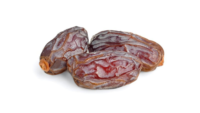MSU Researchers Earn Grant Aimed at Reducing Pathogens in Low-Moisture Foods

Michigan State University’s Department of Biosystems and Agricultural Engineering (MSU BAE) has received a 5-year, $9.8 million grant from the U.S. Department of Agriculture National Institute of Food and Agriculture (NIFA). The grant will allow BAE to take a holistic look at reducing threats of pathogens in low-moisture foods. NIFA has designated the project as a Center of Excellence, meaning it has high merit value and meets criteria for broad impact.
Bradley Marks, professor and chair at MSU BAE is the project director over the grant. He, along with a team of economists, engineers, microbiologists, consumer educators, and risk modelers, is working to reduce the risk of Salmonella, Escherichia coli, and Listeria from harvest to consumer.
“Just being an engineer with a better piece of equipment isn't going to solve this food safety problem. We've got to look at the entire system,” says Marks. “It's a problem that may not always be a headline, but it's a huge economic impact for these companies.”
Low-moisture foods, like cereals and flour, dried fruit, and nuts have been recalled repeatedly in the last few years, posing health risks to consumers and economic threats to businesses. Low-moisture foods are used as ingredients in a variety of products, so if one supplier faces a recall, numerous items could be affected. One recall or outbreak could put a small operation out of business.
“If you're a Fortune 100, publicly-traded company, you can likely sustain a $100 million impact. You don't like it, and the stock market doesn't like it, but you can still exist,” Marks said. “If you're a family-owned private operation and you get hit with a recall, and worse, you get hit with an outbreak linked back to your product, it's possibly a death sentence for a company of that scale.”
E. coli, Salmonella, and Listeria can’t be completely eliminated from dried fruits, nuts, flour, and cereals. However, their occurrence can be reduced—and Marks and his team are looking forward to developing solutions to do just that.
“In 5 or 6 years, we will not rid the earth of pathogens in dry foods, because they're going to be out there. But if we can make a dent that reduces outbreaks of illness associated with this product category to protect public health, and reduce the risk of recalls and the negative economic impact to the companies making the food, then this $9.8 million grant has paid for itself many times over.”
A major component of the grant is creating a food safety culture, or an established understanding of the importance of food safety, as a measure to reduce outbreaks.
“You really have to make sure everybody from harvest to the consumer understands their role in ensuring food safety,” Marks said. “We will develop training and educational resources that help advance that goal.”
MSU researchers Sanghyup Jeong, assistant professor in BAE; Elliot Ryser, professor in the Department of Food Science and Human Nutrition (FSHN); and Felicia Wu, John A. Hannah Distinguished Professor in FSHN and Agricultural, Food and Resource Economics, are part of the grant team. Other members are from Purdue University, Ohio State University, Washington State University, University of California-Davis, the University of Arkansas, the Illinois Institute of Technology, and the U.S. Food and Drug Administration (FDA).
Researchers on Marks’ team and members of the grant’s stakeholder advisory board have expertise in implementing practices for a food safety culture. The 12-person stakeholder advisory board includes representatives from farmer-owned cooperatives, commodity groups, food processing companies, equipment companies, and food retailers.
“The science and the technology are coming along, but science and technology are not enough. It's people,” Marks said. “It's the economic incentives for the companies to behave and make the right kinds of decisions, and then it's ultimately putting all of that together and understanding risk, and then connecting it to sustainability.”
The grant funding includes money set aside for a guest scholars program, which will allow junior faculty from around the country interested in low-moisture food safety to attend the team’s meetings. Meetings will be held twice per year, with one virtual and one in person session.
There is also a diversity, equity, and inclusion (DEI) advisory team.
“We want to build in systems, from square one, that make sure folks are well-included and equitably participating and getting value out of the project,” Marks said. “We’re not just serving the stakeholders in that way, but we're also taking care of our own students and collaborators in a way that advances the cause for DEI.”
Marks said the research, collaboration and networking opportunities the grant allows for will be valuable.
“It’s a big endeavor, but it's exciting to bring together people from different institutions with a variety of expertise to be able to make a difference, while simultaneously offering opportunities for students and colleagues to advance their research, outreach, and educational work in this space,” he said.
“It's going to be fun doing something that's impactful.”
Looking for a reprint of this article?
From high-res PDFs to custom plaques, order your copy today!





